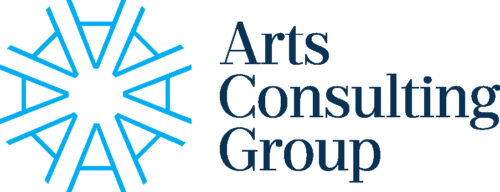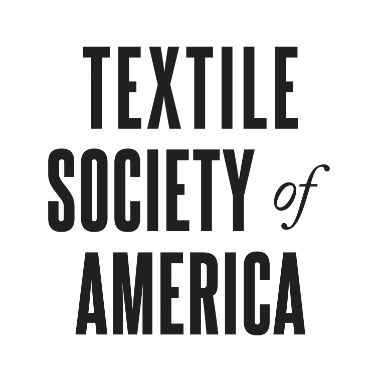Organization
The Textile Society of America (‘TSA’) is a nonprofit organization established in 1987, dedicated to the study and appreciation of textiles from diverse perspectives, including artistic, cultural, historical, and scientific. TSA’s mission is to provide an inclusive and accessible platform for the exchange and dissemination of textile knowledge globally. Its membership comprises curators, scholars, artists, and enthusiasts who share a passion for textiles and aim to foster a deeper understanding of their significance. With an international membership and governed by volunteers from across the United States, staff for the Society work in a remote setting from wherever they are based.
A cornerstone of TSA’s programming is its biennial symposia, held virtually or in various locations across the US and Canada, allowing participants to explore regional textile specialties. These symposia feature presentations, exhibitions, and workshops, covering a wide array of topics from historical studies to contemporary innovations. The proceedings are published online for open access, ensuring the broader dissemination of the presented research. TSA also offers video recordings of select sessions for those unable to attend in person. Complementing the symposia are programs like "Textiles Close Up," which offers hands-on study workshops in leading museums and private collections, and "Contemporary Voices," which engages with current textile artists and their work.
The impact of TSA’s work extends globally, benefiting its members and the public interested in textiles. By promoting diversity and interdisciplinary collaboration, TSA enriches the field of textile studies and enhances its cultural and academic discourse. Through educational initiatives, grants, and awards, TSA supports emerging professionals and fosters new talent. TSA’s dedication to preserving and promoting textile heritage and innovation ensures its ongoing relevance and influence in the textile community.
TSA is governed by a 20-member board of directors, led by Isaac Fascio. For the fiscal year ending December 31, 2023, the total operating revenue was $91,500, with approximately $52,000 secured in donations. Expenses were $75,000. For the fiscal year 2024, annual revenues are projected to be $200,000.
Position Summary
The Executive Director (ED) will apply vision in leading the collaborative efforts of TSA toward a strong, relevant, and sustainable future through progressive plans, policies, and community outreach. With an acuity for detailed work, they will be responsible for daily operations, ensuring TSA’s ongoing activities, and collaborating with Board Committees in fulfilling their goals. Working entirely remotely, the ED will exhibit strong skills in communication and guiding teams of people from across the country.
Roles and Responsibilities
Operations & Administration
- Develop strong organizational plans, policies, and governance structures in collaboration with the Board of Directors.
- Lead the development and implementation of fundraising activities to expand TSA’s operations and programs. This includes all grant writing, earned revenue activities through programs and events, and donor and sponsor cultivation and stewardship.
- Guide committees in the implementation of annual plans and goals.
- Monitor all accounting for efficacy and compliance, assuring adequate control and accounting of all funds, including maintaining sound financial practices.
- Interview, hire, and manage any staff or interns, delegate, which includes coordinating and supervising volunteers for any programs or events.
- Assess and report on organizational performance to the Board.
- Lead management systems and databases related to memberships, payments, and internal communications amongst staff and with members of Committees and the Board.
- Embrace other operation and administration duties as necessary.
Outreach & Marketing
- Vision annual plans for the use of public facing marketing materials.
- Lead content for public communication with members, funders, donors, and the public; website, newsletter, and social media.
- Represent the TSA in person, and online, through public talks and communication, actively seeking opportunities to engage with the broader community and participating in events that inspire and cultivateincreased support.
- Maintain and utilize a working knowledge of significant developments and trends in the textile field.
- Build respect and increase the visibility of the organization among its constituencies.
- Engage partners in advancing the mission and aspirations of TSA.
- Embrace other outreach and marketing duties as necessary.
Program Administration
- Build program development in collaboration with the Board which increases levels of diversity and inclusion in programs, and advances equity and accessibility by removing barriers.
- Vision new programming opportunities which builds value for members, high levels of community engagement, and deepens partnering opportunities for TSA.
- Embrace other program administration duties as necessary.
Traits and Characteristics
The Executive Director will be driven to contribute to the mission of TSA. Open to new ideas and the opportunity to learn and acquire experience, the ED will often be engaging a diverse group of people and a variety of tasks on a day to day level. The ED will be capable of adapting to work that’s required, making sometimes quick decisions, and taking fast action.
Other key competencies include:
- Resiliency and Personal Accountability – The strength to overcome setbacks, remain optimistic, and acknowledge and take responsibility for personal actions.
- Diplomacy and Teamwork – The sensitivity to respect different perspectives while handling difficult issues and addressing sensitive issues with active listening and consensus building.
- Project Management – the ability to identify all components, and to utilize people in the right way, for achieving goals and results.
- Creativity and Innovation – the acuity to synthesize data, ideas, and models and to express non-traditional perspectives and approaches.
- Flexibility – the agility to modify, respond, and adapt to new ideas and changes.
Qualifications
Passion for textile work is a must. Demonstrated leadership experience and proven success in arts programming, presenting, and non-profit management are required. Financial and operational acumen, including past success in fundraising and earned revenue enhancement, are essential. A track record of community engagement and experience in leading a strong and dedicated team of staff and/or volunteers are essential. Past visibility as a primary spokesperson representing an organization to diverse groups of constituents is very helpful.
If you do not meet all the qualifications but possess transferable or equivalent skills, experience, or education, we encourage you to apply and highlight those areas.
Compensation and Benefits
The Society provides a competitive and equitable compensation package in the range of $80,000 to $90,000. TSA provides 10 paid vacation days annually plus vacation time in accordance with federal holidays. TSA further provides 10 to 12 paid sick days per year.
Applications and Inquiries
To submit a cover letter and resume with a summary of demonstrable accomplishments (electronic submissions preferred), please click here or visit artsconsulting.com/opensearches. For questions or general inquiries about this job opportunity, please contact:
Jeff Erbach, Associate Vice President

292 Newbury Street, Suite 315
Boston, MA 02115-2801
Tel: (888) 234.4236 Ext.241
Email: TextileSocietyofAmerica@artsconsulting.com
The Textile Society of America, an international organization, recognizes the profound global reach of textiles. We are committed to developing leadership initiatives, membership, and programming rooted in the plurality of textile histories, producers, and purposes. With an eye toward expanding our voices and audience, we will focus on inclusion of underrepresented groups, and advocacy for robust diversity of our personal and professional viewpoints.
Click here for the downloadable PDF.

